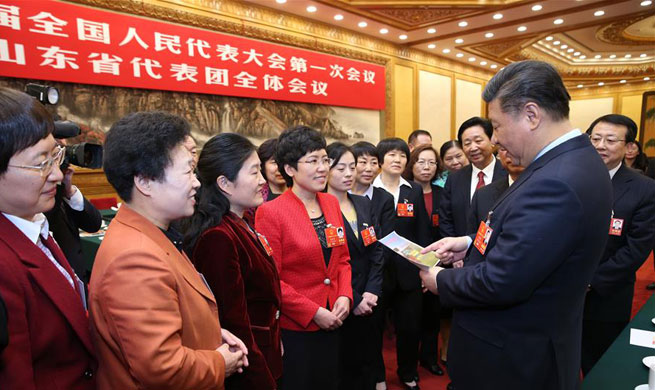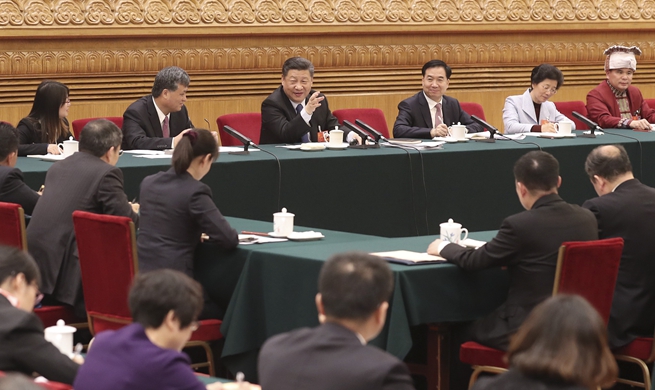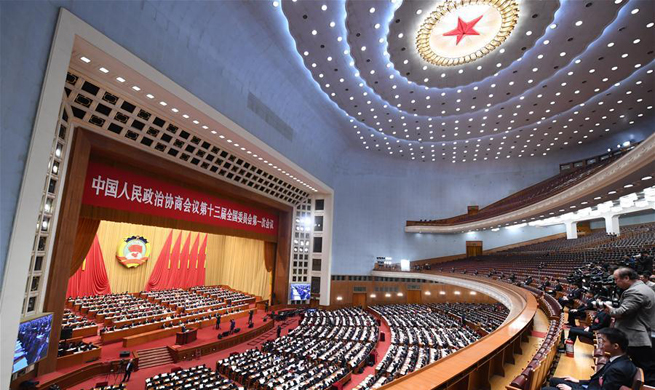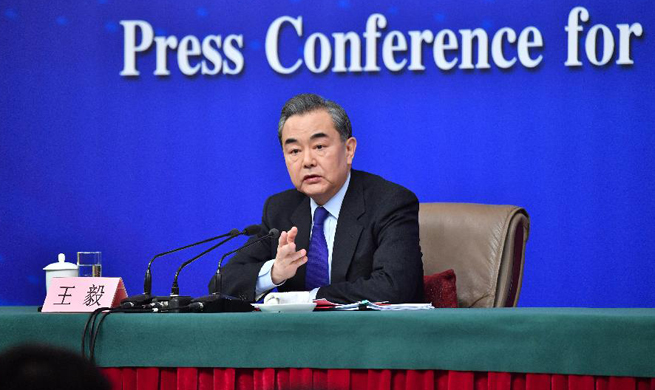
U.S. President Donald Trump is seen on a TV screen announcing tariffs on steel and aluminum, at the White House in Washington D.C., the United States, on March 8, 2018. (Xinhua/Ting Shen)
WASHINGTON, March 8 (Xinhua) -- U.S. President Donald Trump on Thursday formally signed proclamations to impose steep tariffs on imported steel and aluminum amid mounting dissent from business groups and trading partners around the world.
The United States will impose a 25-percent tariff on imported steel and 10-percent on aluminum, Trump said at an event at the White House, noting a strong steel and aluminum industry is "vital to our national security."
The tariffs will take effect in 15 days with initial exemptions for Canada and Mexico pending the renegotiation of the North American Free Trade Agreement (NAFTA).
"We're going to hold off the tariff on those two countries, to see whether or not we're able to make the deal on NAFTA," Trump said.
Trump signaled that all other countries also have opportunities to be exempt from the tariffs by negotiations with the United States.
"If the same goals can be accomplished by other means, America will remain open to modifying or removing the tariffs for individual nations, as long as we can agree on a way to ensure that their products no longer threaten our security," he said.
While Trump argued that new tariffs would boost American steel and aluminum production, economists and business groups have warned that such tariffs could backfire and ultimately hurt the overall U.S. economy.
Past experience has shown that such tariffs will likely raise costs for American consumers, hurt American downstream industries that use metals, and cost thousands of jobs in other manufacturing and services sectors.
A recent study by the Trade Partnership, a Washington D.C.-based consulting firm, also estimated that Trump's new tariffs on steel and aluminum would result in a net loss of 146,000 U.S. jobs after accounting for positive impacts on U.S. steel and aluminum producers.
"I disagree with this action and fear its unintended consequences," House Speaker Paul Ryan said in a statement shortly after Trump's announcement of the tariffs, urging the administration to narrow its policy.
Senate Finance Committee Chairman Orrin Hatch expressed similar concerns about the proposed tariffs, saying "this is a tax hike on American manufacturers, workers and consumers."
"Slapping aluminum and steel imports with tariffs of this magnitude is misguided. It undermines the benefits that the new tax law provides and runs counter to our goal of advancing pro-growth trade policies that will keep America competitive in the 21st century global economy," Hatch said in a statement.

















